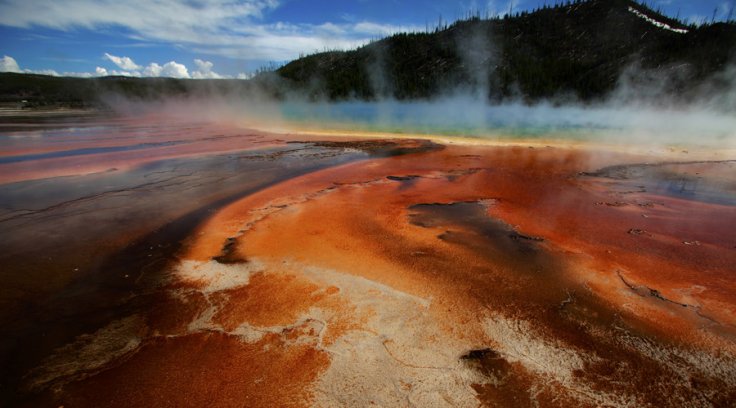
Several people believe that the Yellowstone volcano in the United States is a ticking time bomb, and a deadly eruption could happen anytime. Adding up the heat to these predictions, the United States Geological Survey (USGS) has apparently recorded 134 earthquakes in the last one month near the volcano.
Will Yellowstone volcano erupt in our lifetime?
Out of the 134 earthquakes recorded by the USGS, the strongest measured 1.9 in the Richter scale. It should be noted that an earthquake measuring 1.9 in the Richter scale is considered minor, and USGS claims that these kinds of tremors are quite common in the area.
"The largest event was a minor earthquake of magnitude 1.9 located eight miles north of West Yellowstone, Montana. A swarm of 20 earthquakes ranging in magnitude from 0.2 to 1.5 occurred about four miles south-southeast of West Thumb in Yellowstone National Park from April 12 to 13. Earthquake sequences like these are common and account for roughly 50 percent of the total seismicity in the Yellowstone region," wrote USGS on their website.
Seismologists believe that the Yellowstone volcano is not due for an eruption, and an explosion will not happen in our lifetime. Experts also made it clear that the next blast will not be a volcanic eruption, instead, it will be a hydrothermal eruption.
Will an earthquake trigger volcanic eruption?
On April 1, a powerful earthquake that measured 6.5 in the Richter scale had jolted Idaho, and this seismic activity made many believe that it could trigger a volcanic eruption in Yellowstone. However, seismologists soon made it clear that earthquakes will not trigger a volcanic eruption, but will cause changes in the geyser behavior.
"There's always rumors about Yellowstone erupting. Earthquakes don't trigger eruptions. They don't trigger volcanic activity. But they can trigger changes in geyser behavior. So what's probably happening is that the shallow conduits that feed the hot springs and geysers are sort of broken up by the shaking and that causes the hot water to find other ways out," said Michael Poland, a geophysicist working at the USGS.









